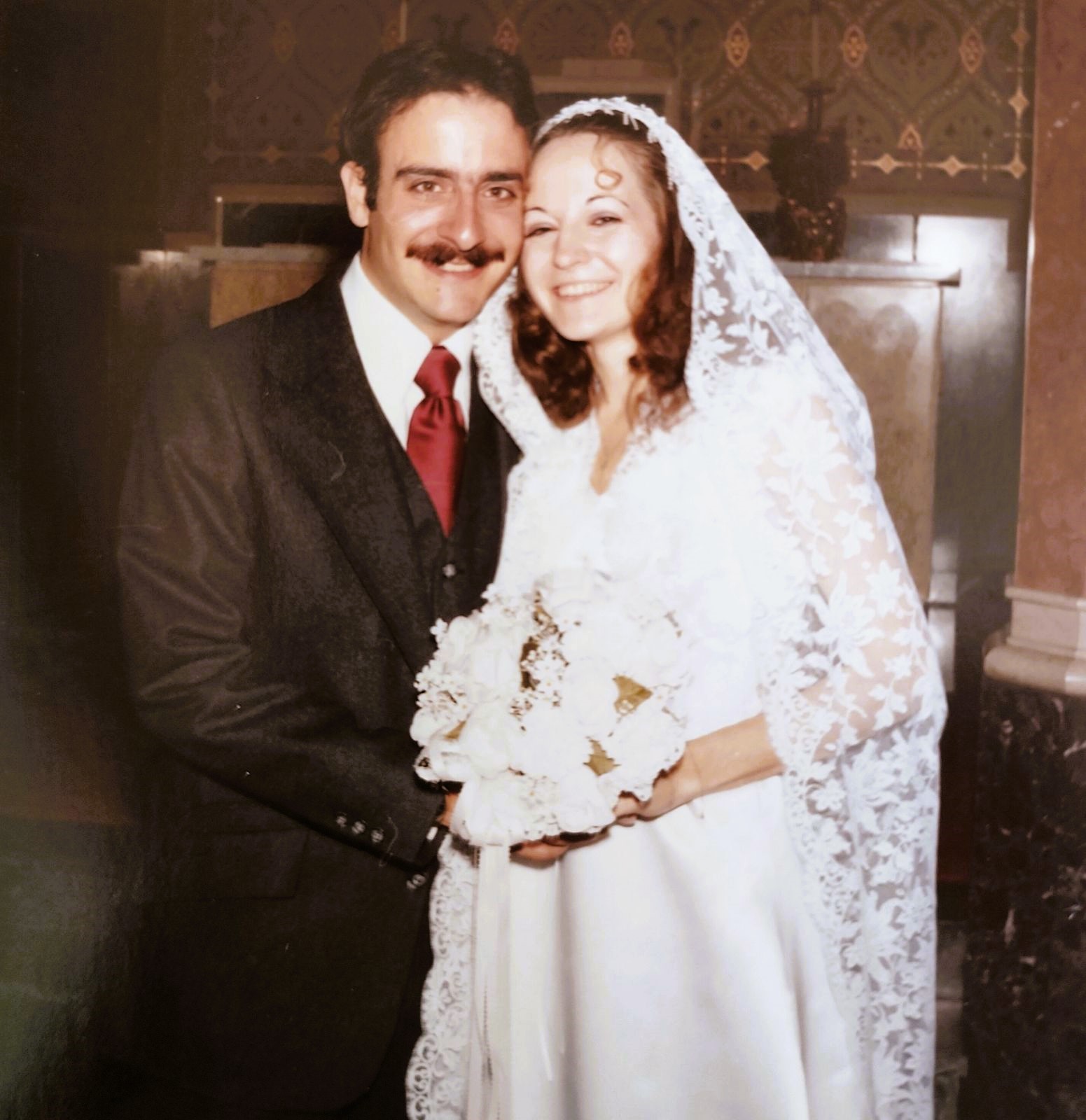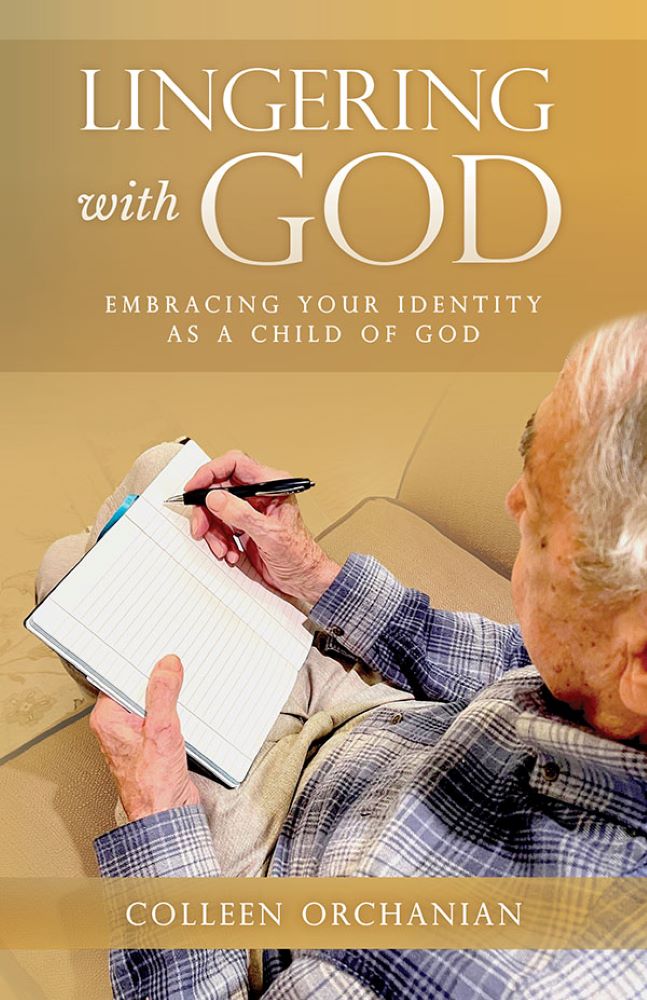All of Me
 In marriage, we are called to give ourselves fully to our spouse. We give everything – our whole heart. Maybe we don't start out that way because we don't actually know what that means, but if a marriage lasts and gets stronger through the decades, it's because the partners gave everything to the marriage. It's the same with God. True union with God demands that I give everything to Him because He has already given everything to me.
In marriage, we are called to give ourselves fully to our spouse. We give everything – our whole heart. Maybe we don't start out that way because we don't actually know what that means, but if a marriage lasts and gets stronger through the decades, it's because the partners gave everything to the marriage. It's the same with God. True union with God demands that I give everything to Him because He has already given everything to me.
St. Therese of Lisieux said, "You cannot be half a saint. You must be a whole saint or no saint at all." When you hear that, you might think, "of course!" (at least I do.) But when it comes to practical application, my response is not so confident.
You will find this idea of giving it all to God in many places in Scripture. Joshua (in chapter 24) challenged the Israelites, "Choose this day whom you will serve. As for me and my house, we will serve the Lord." In 1 Kings 18:21, Elijah is challenging the people who are fence-sitting by saying, "How long will you go limping with two different opinions. If the Lord is God, follow him; if Baal, then follow him." St. Paul wrote in 1 Corinthians 10:21, "You cannot drink the cup of the Lord and the cup of demons. You cannot partake of the table of the Lord and the table of demons." Jesus said in Matthew chapter 6 "You cannot serve two masters."
All of these passages point to the fact that God wants all of us. He wants us – actually calls us – to be wholehearted. We are to love Him with ALL our heart, soul, mind, and strength. He doesn't want half a saint because He gives us all the grace we need to be a whole saint. The question is: Are we open to that grace? Will we be like the people Elijah challenged who kept silent rather than choosing between the Lord and Baal? Or will we be like Joshua who confidently declared that he would serve the Lord?
Maybe you sincerely want to serve the Lord but wonder what that actually means. How do I serve with a whole heart? How do I serve with All of Me? I think the answer is to look at each of the different parts of our life and give each of them to God.
I can give my family to God. When choosing a partner, do I choose one who knows and loves God? I was in a long line last week talking to some college girls who were bemoaning the fact that the quality of eligible men on campus was pretty low. I suggested they look for men who love God first. We let God lead us to our spouse. If we have children, we teach them about God. Our relationship with God is so important to that they learn from our example. When we lose someone we love, do we surrender them to God like Job, who said, "The Lord gives and the Lord takes away. Blessed be the Lord." Is my faith evident to my family members in the way I live, serve, speak to, teach and nurture my children? If God has all of me in my family, I realize that it is His family, not mine. I am only a steward.
I can give my work to God. That doesn't mean I have to have a job in a church or in a Christian ministry. It doesn’t even have to mean that I have a paying job. Maybe I’m a stay-at-home parent. Whatever my work, if I give all to God, it means that I seek God's will first when choosing a career. I am a good worker, always giving my best effort on the job. If I own a business, I make ethical decisions that align with Christian values. My work is not separate from my faith. Rather, my faith strengthens me in my ability to work well. My good work gives glory to God.
We can give God our political preferences. Which comes first in my priorities: my political party or my Christian identity? Is my behavior becoming of a saint when I communicate with people who are on the opposite side of the political spectrum or social issue? If I give all to God, I can have civil, thought-provoking, healthy conversations with people who are diametrically opposed to my views because I treat them the dignity due one who is made in the image and likeness of God. Does God come first or do I need to win the argument? If I give all of me to God, winning an argument is irrelevant.
I can give God my morality, meaning that I follow the laws he has given us. It's hard not to follow the morality of the times, but that's not what a saint would do. It might be what a half-saint would do, but but that would make them not a saint at all. We don't have to be the sin police, pointing out the failures of others. It's more important to look inward and identify our own weaknesses. Do I excuse my own behavior because I think the moral laws laid down in the Bible are outdated or are too difficult? Every time I do that I am settling for being half a saint.
I can give God my friendships. Do I have friends who lift me up or do they pull me down? Do they make me strive to be a whole saint or encourage me to settle for less – for half a saint? What kind of friend am I to others? Am I more likely to lift them up – to challenge them to be whole saints, or do I allow them to settle for less? Here's an example. A friend is considering divorce. They are bored and want something new. How strongly do I encourage them to stay and fight for their marriage? How willing am I to be the voice of God, encouraging others and calling them to a higher standard?
I can give God my time. In reality, it's actually His time. He gave it to us. So what does God want me to do with my time? Some is for work because work is good for the soul. Some is for family, because they are the building blocks of civilization and my primary vocation. Some is for worship, when we come together in community to praise God. And some is for personal prayer, when we sit in silence with God – one-on-one. We can ask ourselves if we use our time in a way that is pleasing to God. When things start to go wrong – or don't go according to our plan, we can surrender our expectations – our plan – and yield to whatever God has for us in that moment? We can seek God’s will in every moment of our day.
I DO want to be a whole saint. And at the same time I resist giving all of me to God. I want things my way, on my timeline. Sometimes I get confused and think my opinions must be the same as God's and I resist hearing anything that contradicts my thinking. Sometimes I resist making changes in my life because I like things the way they are. God may be calling me to something out of my comfort zone, but my ears are closed to His voice. Sometimes I shy away from correcting my friends because I don't want to offend them or rock the boat. Why can't we all just get along? But Jesus didn't just get along. He spoke the truth. He was the Truth. He loved the soul, and all of His work was to save souls. He died to save souls. How about us? Are my actions toward others based on my love of their soul – on my desire for them to enter Heaven? That is the mind of a saint.
I am definitely not yet a whole saint. I may not yet even be half a saint. The desire is there. The will is lacking. And so I strive, I pray, I take small steps, I try to trust God more so that I can give Him All of Me. It is exactly what He deserves.
Questions for prayer:
-
In what ways do I hold back in my relationship with God? Where have I settled for being half a saint.
-
What is one thing I can do to give more of myself to God? How can I give God all of me?

